Main Notwithstanding Takeaways:
- Notwithstanding means despite, nevertheless, however, or although.
- You can use this word as a preposition, as a conjunction, or as an adverb.
- A common legal phrase is “notwithstandinganything to the contrary.”
- Antonyms include because of, given, consequently, and accordingly.
Notwithstanding is a complex word. If you’re not sure what it means or when to use it, you’re not alone. In this guide, you’ll get a detailed notwithstandingdefinition as well as plenty of synonyms and antonyms. You’ll also see how and when to apply the word so you look (and sound) like a Pro.
Not and Withstanding stumble into a bar and flop dramatically over the counter. The barman says, “Is this some kind of dangling preposition?”
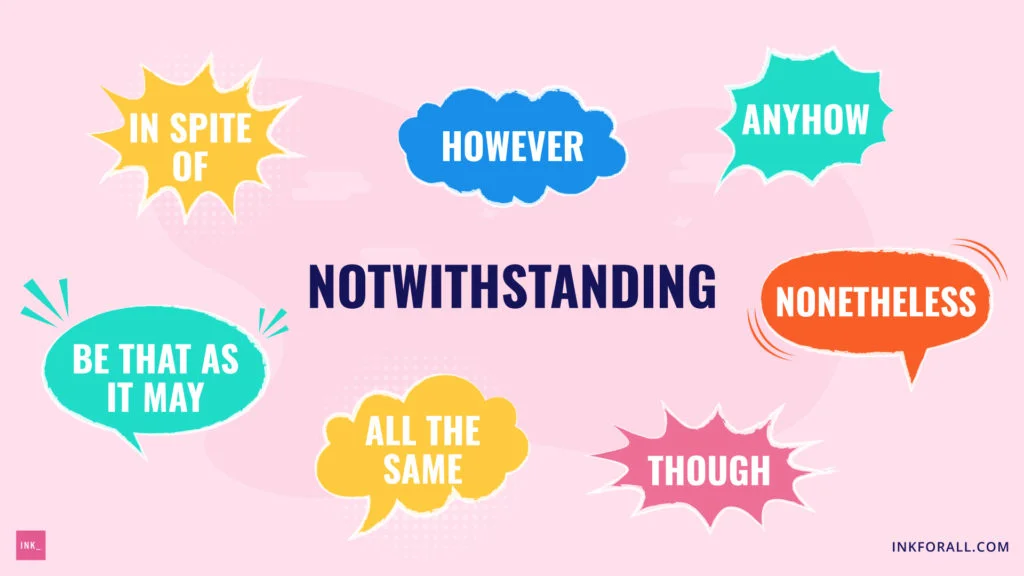

What Does it Mean to Say Notwithstanding?
Notwithstanding means despite, nevertheless, however, or although. In modern English, this term is used most commonly as a preposition (“His sprained anklenotwithstanding, Marcus hobbled over the finish line“). You can also use notwithstanding as a conjunction (“Nobody noticed the ancient book,notwithstandingits previous place in the museum display”) and as an adverb (“Bert hates the logo and the audio sequence, but we will press onnotwithstanding“).
To understand and define notwithstanding properly, we need to pull it apart a little.
Many might expect that notwithstanding is made of three words: not, with, and standing.
In fact, it has its origins in twoMiddle English words: not and withstonding (from withstonden, meaning to withstand). A solid preposition in the 14th century, notwithstonding/notwithstanding slipped into common use as an adverb and a conjunction in the 15th century.
What Does Notwithstanding Mean in Legal Terms?
Notwithstanding generally means nevertheless, although, despite, or in spite of in legal writing. Its meaning in legal documents doesn’t change — it’s still just another word for nevertheless. “Notwithstanding anything to the contrary,” for example, means that a clause overrides anything that might later contradict it. This and other multisyllabic connectors like inasmuch are common in legal writing like contracts, official reports, judgments, and other legal documents.
Examples of the word notwithstanding in legal documents might include:


How Do You Use Notwithstanding in a Sentence?
Notwithstanding is considered a formal term in the English language. Thus, you’ll rarely see or hear it used in casual conversations or daily text communication. However, if you’re wondering how you can use notwithstanding correctly in a sentence, here’s a quick tip. You can use notwithstanding in place of in spite of, nevertheless, regardless, and despite.
Here are some examples of how you can use notwithstanding in a sentence:
What is Another Word for Notwithstanding?
There are plenty of synonyms for notwithstanding in the thesaurus, and they include nevertheless, despite, regardless of, however, nonetheless, even so, whereas, albeit, and many more. The substitute word or phrase will depend on whether you’re using notwithstanding as a conjunction, an adverb, or a preposition.
The Best Notwithstanding Synonyms:
- At any rate
- However
- After all
- For all that
- Regardless of
- In any event
- At any rate
- In any case
- All the same
- Regardless
- Still
- Despite
- In spite of
- To the contrary
- Nevertheless
- Nonetheless
- Even
- But
- Although
- Yet
- Howbeit
- Though
In the following examples, we replaced the word notwithstanding with one of its synonyms, which you’ll see in bold:
How Do You End a Sentence with Notwithstanding?
You can end a sentence with notwithstanding. Where this word appears in a sentence often depends on which part of speech it is. For example, when at the beginning of a sentence, it’s usually acting as a preposition (“Notwithstanding her lack of sleep, she gave a great performance”). When in the middle of a sentence, it’s usually a conjunction (“They hiked all morning, notwithstanding the rainy weather”). When you end a sentence with notwithstanding, it’s usually an adverb that helps add nuance to your statement (“He didn’t have time to review her resume. He hired her, notwithstanding”).
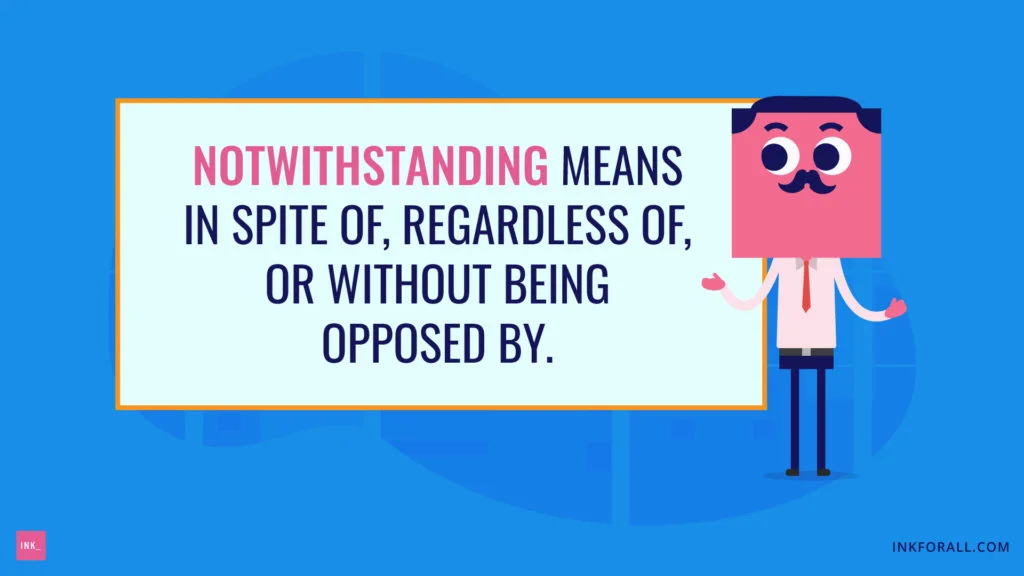

What Is the Opposite of Notwithstanding?
Antonyms of notwithstanding are a little harder to define, but they include: because of, thanks to, given, owing to, and in the wake of. Consequently, therefore, accordingly, and subsequently are also antonyms. Since notwithstanding means “regardless of,” the opposite is “because of.”
Opposites of notwithstanding include:
As a preposition:
- because of
- thanks to
- as a result of
- due to
- as a consequence of
- through
- given
- owing to
- on the basis of
- by reason of
- on the grounds of
- by virtue of
- on account of
- per
- by means of
- for the sake of
- in the wake of
- after
As a conjunction:
- considering
- given that
- being that
- seeing that
- after all
As an adverb:
- therefore
- hence
- consequently
- so
- thus
- ergo
- accordingly
- subsequently
- since
- as a result
- for this reason
- because of that/this
- that being the case
- that’s why
- on account of
- due to the fact
- as you can see
- At the beginning: Preposition
- In the middle: Conjunction
- At the end: Adverb
Here are some examples of opposites of notwithstanding in a sentence:
Wrapping Up
Some words are hard to grasp at first, but they’re genuinely useful when you get to know them. Notwithstanding your first impressions of notwithstanding, we hope you’ll make this versatile word part of your lexicon.
A Quick Notwithstanding Quiz to Help you Master it
Notwithstanding Question #1
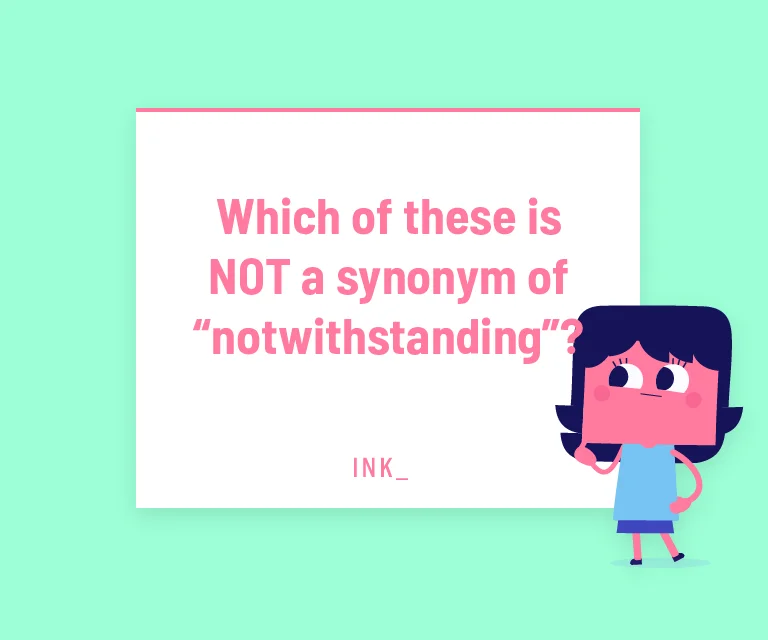

The answer is C. “Consequently” is an antonym for “notwithstanding”.
Notwithstanding Question #2
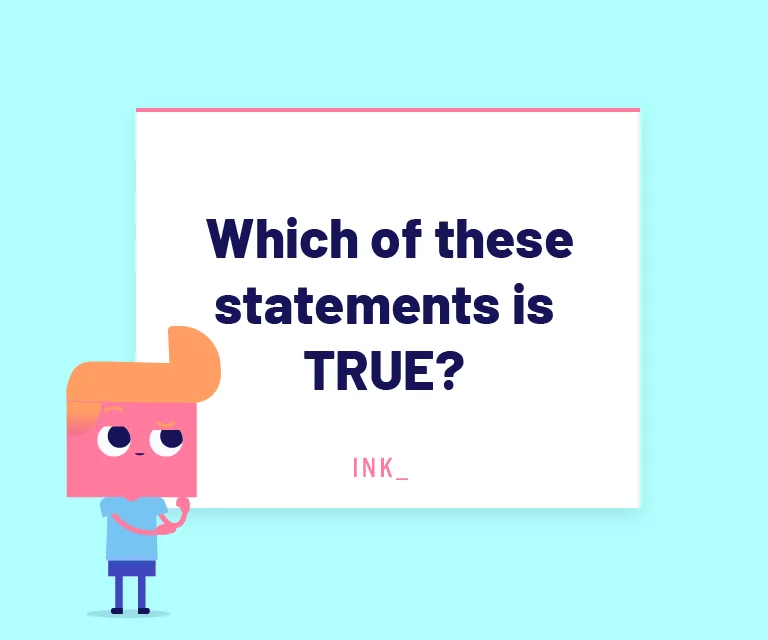

The answer is D. You can use “notwithstanding” as a preposition, as a conjunction, or as an adverb.
Define Notwithstanding Question #3
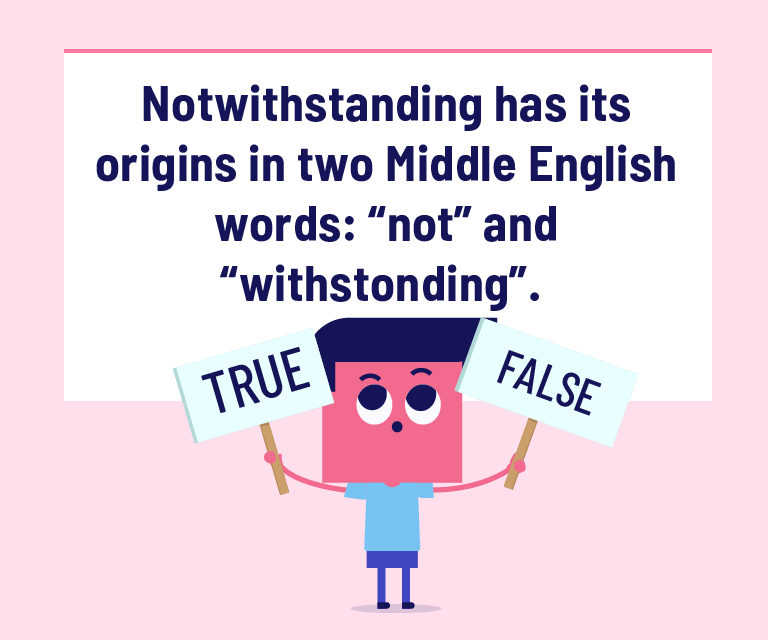

The answer is TRUE. “Notwithstanding” slipped into everyday use as an adverb and conjunction in the 15th century.
Notwithstanding Meaning Question #4
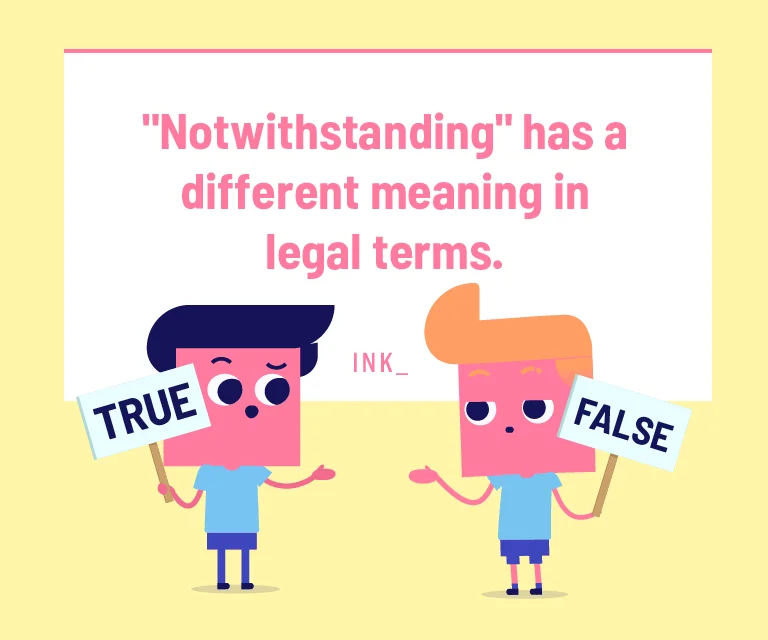

The answer is B. In legal documents, “notwithstanding” is still another word for “nevertheless”.
Notwithstanding Question #5
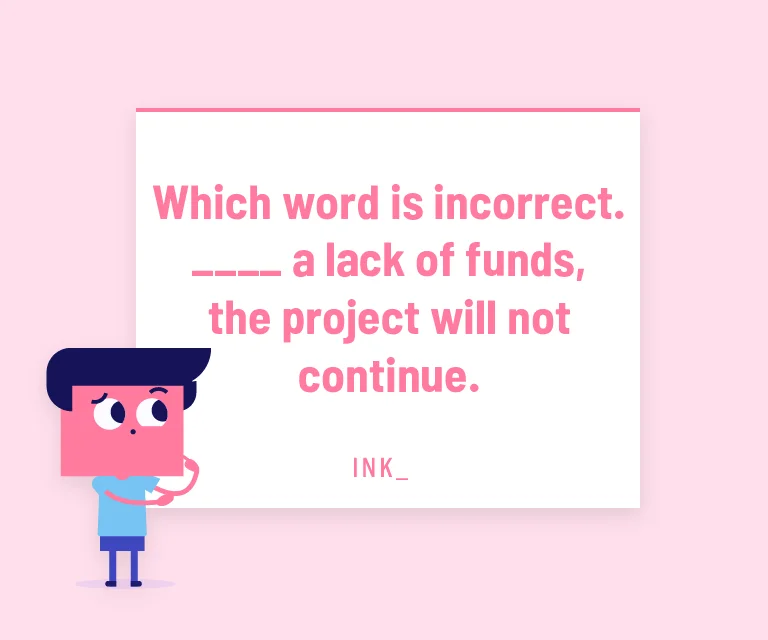

The answer is D. This phrase means the opposite of “notwithstanding”.







The bill passed notwithstanding the strong opposition. I want it to say The bill passed withstanding the strong opposition. What am I missing?
Hi David!
Thanks for the question. “Notwithstanding” in your sentence means “despite” or “in spite of”. On the other hand, “withstanding” is a verb that means “remain undamaged or unaffected by; resist.”
In the first sentence, the bill passed despite or in spite of the strong opposition. Meanwhile, the second sentence suggests that the bill resisted or remained unaffected by the strong opposition and passed successfully. While both sentences are correct, the meanings are slightly different. Thanks!
The passing of the bill was affected, but not stopped by the opposition, right?
Pam, thanks for responding, I appreciate it! The prefix “not” is what is bothering me. In my first sentence, is it alright if I interpret the meaning as “not” unaffected, in other words, it passed but it was affected by the opposition.
You’re welcome, David! Yes, saying “not unaffected” would be akin to saying it was affected by it. So, while it passed, opposition was voiced and thus had some impact or affect, even if it didn’t stop its passing.